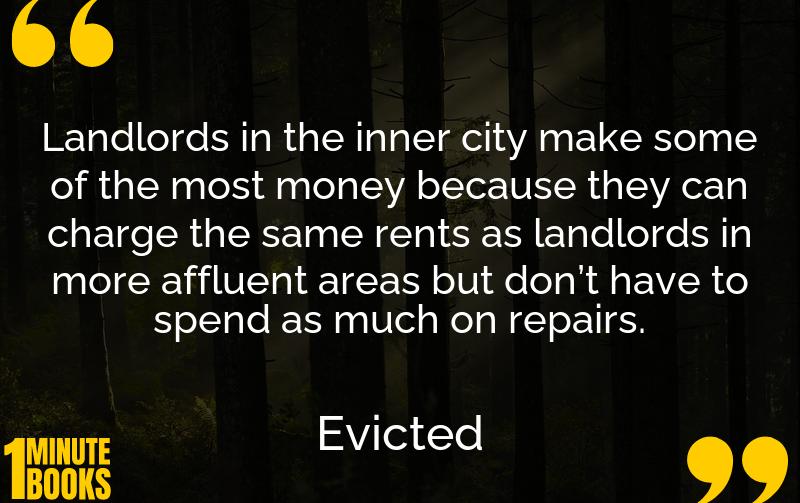
Evicted offers a stark look at poverty in Milwaukee by following eight families facing eviction. Through real-life stories, Desmond explores the impact of housing instability on families’ lives between 2008 and 2009.
Main Lessons
- Housing instability is a common issue for low-income families, leading to negative impacts on their lives.
- Landlords in disadvantaged areas often profit by minimizing repair costs and maintaining high rents.
- Evictions perpetuate poverty by making it difficult for affected individuals to secure stable housing and employment.
- Socioeconomic and racial factors play a significant role in housing discrimination and access disparities.
- The legal system can be overwhelming and unfair for tenants facing eviction, often favoring landlords.
- Interpersonal relationships and community networks serve as important support systems for families in crisis.
- Programs aimed at housing assistance and rehabilitation can provide crucial lifelines for recovery but are often limited.
- Substance use, mental health challenges, and limited job opportunities exacerbate tenants’ struggles.
- Systemic issues, such as the war on drugs, disproportionately affect communities of color, adding to housing difficulties.
- Families, especially single parents, often face tough choices between basic necessities and paying rent.
- Despite efforts to improve circumstances, many individuals remain trapped in cycles of poverty and instability.
- The resilience and tenacity of those facing eviction highlight their hope and persistence despite adversity.








